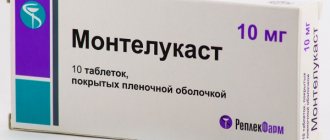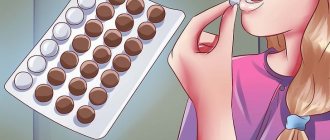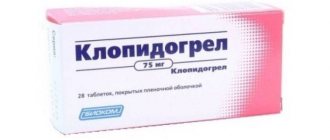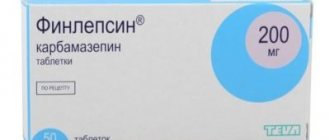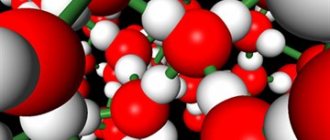Compound
Jess birth control pills contain the active ingredient ethinyl estradiol (a form of betadex clathrate ), and Jess also contains the active ingredient drospirenone .
In addition, the tablets contain additional ingredients: corn starch, lactose monohydrate, magnesium stearate.
The composition of the tablet shell includes hypromellose, titanium dioxide, talc, and dye.
pharmachologic effect
The abstract indicates that the drug Jess is a monophasic oral contraceptive, which also has an antiandrogenic and antimineralocorticoid effect on the body.
The contraceptive suppresses the ovulation and also affects the cervical secretion, as a result of which sperm cannot penetrate through it freely.
Those women who take this medicine note that their monthly cycle is more regular, menstruation becomes less painful, and bleeding is less heavy. As a result, the risk of anemia . When using combined oral contraceptives, the likelihood of ovarian and endometrial .
The active substance drospirenone has an antimineralocorticoid effect on the body. Under its influence, the accumulation of extra pounds in the body, as well as the appearance of edema, is prevented. It has a positive effect on a woman’s condition during PMS, reducing the intensity of psycho-emotional disorders, chest pain, joint pain, and other unpleasant symptoms.
There is antiandrogenic activity of this component, which determines a positive effect on the condition of the skin. As a result, the amount of acne decreases and the level of oiliness in the skin and hair decreases. The effect of drospirenone is similar to the effect of natural progesterone in the body.
Drospirenone lacks estrogenic, androgenic, glucocorticoid and antiglucocorticoid activity. When combined with ethinyl estradiol, drospirenone has a beneficial effect on the lipid profile.
Description of the hormonal drug Jess
Jess is a monophasic hormonal drug with antimineralocorticoid and antiandrogenic properties, which has a persistent contraceptive effect. The main mechanism of action of the drug is to suppress the normal activity of the ovaries and change the chemical properties of the cervical secretion, which makes it difficult for sperm to move to the cervix.
The drug Jess is available in the form of tablets coated with a soluble coating. The number of tablets in one package is 28 (24 active, light pink, and 4 inactive, white). One tablet contains the following active ingredients: 20 mcg ethinyl estradiol and 3 mg drospirenone.
In addition to use for contraception, the drug is indicated for use in the treatment of various diseases of the reproductive system in women, such as ovarian corpus luteum cyst or pronounced premenstrual syndrome.
Pharmacokinetics and pharmacodynamics
Drospirenone is absorbed quickly and almost completely after oral administration. The maximum concentration is observed 1-2 hours after administration. Its bioavailability level is 76-85%. Bioavailability does not depend on the relationship between food and drug intake. When taken in cycles, maximum serum levels of drospirenone are observed between days 7 and 14 of treatment.
After internal administration, drospirenone is metabolized extensively. Only a small part of the substance is excreted unchanged. Metabolites are excreted through the kidneys and intestines. The substance is well tolerated by patients with mild to moderate liver failure.
Ethinyl estradiol after oral administration is absorbed completely and quickly. After a single dose, the maximum concentration is observed after 1-2 hours. The bioavailability of the component is about 60%. Metabolized entirely through aromatic hydroxylation. Metabolites are excreted from the body with bile and urine.
Jess after polyp removal
The drug Jess after removal of a polyp is often prescribed as hormone therapy to restore ovarian function. While taking it, the reproductive organs “rest” and regenerate safely. The tablets should be consumed according to the standard regimen, from the 1st day of the menstrual cycle, preferably according to the schedule. Usually the course of treatment lasts 3 months.
Contraindications
The following contraindications for taking Jess are noted:
- venous and arterial thrombosis and thromboembolism (in history, currently), cerebrovascular disorders;
- conditions preceding thrombosis;
- migraine (in history, currently);
- diabetes mellitus complicated by vascular symptoms;
- the presence of risk factors for venous or arterial thrombosis in a woman;
- pancreatitis with hypertriglyceridemia (in history, currently);
- severe liver disease, liver failure;
- malignant liver tumors (in history, currently);
- renal failure in severe and acute form;
- malignant hormone-dependent diseases, suspicion of their development;
- adrenal insufficiency;
- vaginal bleeding of unknown origin;
- suspicion of pregnancy;
- breastfeeding;
- high sensitivity to the ingredients of the drug.
You should take the drug with caution in the presence of any of the factors contributing to the manifestation of thromboembolism , thrombosis , as well as other diseases that may cause disturbances in peripheral blood flow. The contraceptive is prescribed with caution for any liver disease, hypertriglyceridemia , hereditary angioedema .
Jess is carefully prescribed to women in the postpartum period, as well as to those who have diseases that arose or worsened during pregnancy or while taking sex hormones. This may be cholelithiasis , cholestasis , otosclerosis , porphyria , herpes , etc.
Side effects
The most common side effects of Jess are:
- nausea;
- irregular periods;
- bleeding from the genitals of unknown origin;
- pain in the mammary glands.
Serious side effects of the drug, which occur in rare cases, are thromboembolism (venous, arterial).
The following side effects have also been reported occasionally:
- migraine;
- depressed mood, mood swings, decreased sexual desire;
- erythema multiforme.
There are a number of side effects that occur very rarely, but they may be associated with the use of Jess:
- tumors;
- erythema nodosum;
- hypertension;
- worsening symptoms of angioedema;
- liver dysfunction;
- influence on insulin resistance, changes in glucose tolerance;
- Crohn's disease;
- chloasma;
- nonspecific ulcerative colitis ;
- symptoms of hypersensitivity.
Instructions for use of Jess (Method and dosage)
If a woman chooses Jess contraceptive pills, the instructions for use must be strictly followed. It is stipulated that the tablets must be taken strictly in the order indicated on their packaging. The drug should be taken at approximately the same time every day, washed down with a small amount of liquid. Instructions for use of Jess include taking one tablet per day for 28 days. A new pack should begin the day after women take the last tablet from the previous pack. Typically, bleeding may begin 2-3 days after withdrawal occurs.
If a woman has not taken any hormonal contraceptives in the previous month, Jess should be taken on the first day of the menstrual cycle. It is possible to start taking it on the 2-5th day of the cycle, but it is advisable to use additional barrier contraception during the first seven days of taking Jess tablets.
How to take pills when switching to them after other methods of contraception, you should ask the gynecologist who recommended this drug.
After an early abortion, you can start taking Jess immediately, without the need for additional contraceptive measures.
If childbirth or abortion occurred in the second trimester, then it is advisable to start taking Jess OK on the 21-28th day after that.
In the event that a woman misses a pill that is inactive, this can be ignored. But still, you should not take missed inactive pills, which is why they are thrown away.
If an active pill is missed and the delay does not exceed 12 hours, then the protection is not reduced. You need to take the drug as soon as possible. If the delay exceeded 12 hours, the woman missed 2 tablets, or the break was even longer, in this case the level of protection is reduced. Accordingly, the longer the break, the greater the likelihood of fertilization.
Thus, the consequences of stopping taking Jess are as follows: if it lasts 4 days or more, the likelihood of pregnancy increases significantly. In order for adequate suppression of the hypothalamic-pituitary-ovarian axis to occur, it is necessary to take the pills continuously for seven days.
Therefore, if a woman misses it, she needs to take the next pill as soon as possible; she can take two pills at once. Next, you continue to take active tablets at the usual time. Inactive ones should be thrown away and a new package should be started. In this case, bleeding during administration is unlikely, however, slight discharge may occur during administration.
If during the period of use there was a break in the use of active pills, and no bleeding was noted on the days of taking inactive pills, pregnancy should be excluded.
In the event of the development of serious gastrointestinal disorders, incomplete absorption of the active substances is possible. On such days, it is necessary to use additional contraception. If a woman vomits within 4 hours of taking the pill, proceed as if she missed a pill.
It is advisable to ask a gynecologist in detail about how to stop taking pills and at the same time switch to other methods of contraception.
What to do if you missed a pill?
When an active hormonal contraceptive pill has been missed, it should be taken as soon as possible. There is no need to change the dosage regimen further. If use lasts more than 1 month, the contraceptive effect is not reduced. If you miss a placebo tablet, you should throw it away so as not to accidentally prolong the period of their consumption.
The combined drug Jess can be taken for an unlimited period of time by women of any age. Gynecologists recommend taking breaks once a year for 3 months for nulliparous girls. When planning a pregnancy, cancel your appointment on any day and wait for the start of natural menstruation. Its cost is 290 hryvnia, about 695 hryvnia per package.
Interaction
With the simultaneous use of Jess and other drugs (a number of antibiotics, enzyme inducers) it can provoke breakthrough bleeding, as well as a decrease in the level of reliability.
When used simultaneously with Jess drugs that induce microsomal liver enzymes (these are barbiturates , primidone , carbamazepine , phenytoin , rifampicin , etc.), the clearance of sex hormones increases.
Under the influence of some antibiotics, it is possible to reduce the enterohepatic circulation of estrogens and, accordingly, reduce the concentration of ethinyl estradiol.
During the period of simultaneous use of drugs that affect microsomal enzymes, as well as for 28 days after discontinuation of such drugs, additional contraceptives are required. Additional contraception is needed for 7 days after taking ampicillins and tetracyclines.
Jess may affect the metabolism of other medications.
To determine the likelihood of interaction with Jess of other drugs, you must carefully read the instructions for them.
Special packaging
Manufacturers took care of forgetful women, and specially developed such packaging so that they could easily navigate not only in the order of administration, but also correlate it with the days of the week.
The fold-out packaging contains a blister containing 24 pink tablets containing the active ingredient and 4 orange tablets containing the placebo effect.
There is also a block of stickers of 7 strips, each of which starts with one of the days of the week, and then the rest follow in order. When a woman starts taking Jess, she must determine the current day of the week and select the strip that starts with it. The sticker is transferred to the front of the blister above the first row of tablets, starting from the starting one. This way you can always find out by the days of the week whether the required dose was taken, how many days were missed and when to start drinking the next package.
special instructions
If there are certain risk factors, before taking Jess, you need to weigh the advisability of using this particular contraceptive.
It should be noted that during research, a connection was discovered between protection using oral contraceptives and an increase in the incidence of thromboembolism, venous and arterial thrombosis. However, these diseases are very rare. A higher risk of thrombosis is observed in smokers, older people, obesity, migraine, heart valve disease, dyslipoproteinemia, and atrial fibrillation.
If the intensity and frequency of migraines increase, you should stop taking Jess.
There is also a risk of cervical cancer in women with persistent human papillomavirus infection .
Rarely, women who took oral contraceptives have developed benign liver tumors. In very rare cases, malignant liver tumors have been reported.
Women who are at high risk of hyperkalemia should have their blood potassium levels determined during their first cycle of using Jess.
Women with hypertriglyceridemia should note that when taking Jess, their risk of developing pancreatitis increases.
If a woman experiences a marked increase in blood pressure while taking the drug, the contraceptive should be stopped. If blood pressure can be normalized through antihypertensive treatment, then taking the pills can be continued.
In case of acute or chronic liver disorders, it is necessary to discontinue the drug until the condition returns to normal.
While taking combined oral medications, some laboratory parameters may change, but they do not go beyond the normal range.
Jess, like other combined oral contraceptives, cannot protect against sexually transmitted diseases, as well as against HIV infection.
Using Jess pills for birth control, the woman notes that she does not have periods when taking it. Sometimes, more often in the first months, a woman notices that her menstrual cycle becomes irregular. As a rule, the adaptation period lasts for three cycles.
Taking the drug does not affect the ability to concentrate.
Withdrawal of the drug
The main reasons for the need to discontinue the drug can be divided into two groups:
1. Not directly related to the woman’s health status
- pregnancy planning;
- lack of sexual intercourse;
- fears of long-term use of hormonal contraceptives or other psychological factors.
2. Related to the patient’s well-being
- identification of diseases that are a contraindication to taking the drug;
- a sharp deterioration in health after starting to use COCs;
- pregnancy diagnosed while taking a hormonal remedy;
- switching to another contraceptive due to side effects.
Let's take a closer look at how to stop drinking Jess Plus tablets without harm to your health and the risk of dangerous complications.
Rules for canceling COCs
When the active components of the product stop entering the body, a significant hormonal imbalance occurs, which affects the general well-being of the woman.
In order for the cancellation of contraception to be painless, the following rules must be followed:
- First consult with a gynecologist to identify possible contraindications and draw up an optimal dosage reduction regimen, taking into account the individual characteristics of the patient. This is especially important for women who use pills not only to protect against unwanted pregnancy, but also for the therapeutic correction of endocrine disorders. If COCs are not discontinued correctly, severe side effects may occur in this case, including serious hormonal imbalance.
- Complete the started dosing cycle in accordance with your doctor’s recommendations.
Abrupt withdrawal of the drug
It is strictly not recommended to abruptly stop taking Jess Plus. In this case, serious complications may develop:
- breakthrough bleeding from the genital tract on the 2-3rd day of withdrawal;
- disruption of the menstrual cycle (amenorrhea, irregular menstrual periods, changes in the amount and nature of discharge);
- irritability, nervousness, sleep disturbances;
- pain and heaviness in the ovarian area;
- headaches, blood pressure surges;
- nausea, dyspepsia, loss of appetite, weight loss;
- decreased sex drive;
- general malaise.
However, emergency cessation of the use of birth control pills may occur in the event of the development or exacerbation of pathological conditions in which this type of contraception is unacceptable, as well as if any surgical intervention is necessary. Immediate treatment is allowed in case of a sharp deterioration in health of unknown origin before visiting a gynecologist or other specialist.
As a rule, severe side effects of COC withdrawal are observed when the patient neglects medical recommendations or voluntarily takes birth control pills without a gynecologist’s prescription.
Severe painful withdrawal symptoms are observed in women with any chronic pathologies and hormonal disorders.
The most dangerous complication of abrupt drug withdrawal is bleeding. If the discharge does not stop within 7-10 days or gets worse over time, you should immediately seek medical help.
Rehabilitation period
When the regular intake of the active components of contraceptives into the body stops, the gonadotropic function of the pituitary gland immediately resumes. This leads to a sharp increase in ovarian function, which results in some side effects. During this period, gynecologists recommend taking care of reliable contraception for those couples who are not planning to conceive.
Restoration of the reproductive system occurs in several stages:
- The secretory and ovulatory phases of the cycle are normalized.
- The uterine endometrium grows, compensating for the atrophic changes that occurred while taking the pills.
- The viscosity and chemical composition of the mucous membranes of the vagina and cervical secretion changes.
The rehabilitation period lasts from several weeks to several months. During this time, most women experience irregular menstrual cycles, including amenorrhea.
In the future, the frequency of the onset of critical days may change compared to the period before the use of COCs. Typically, if a woman has suffered from irregular discharge before, the problem may return and get worse after stopping birth control pills.
If, while taking Jess Plus, the patient followed all the rules and recommendations of the doctor, restoration of the reproductive system proceeds without complications.
Contraindications for withdrawal
There is a group of patients who are not recommended to stop taking COCs without a good reason (contraindications or planning to conceive).
This includes the following conditions and disorders:
- menopause (the risk of osteoporosis increases);
- anemia (the volume of blood lost during menstruation increases);
- chronic infectious and inflammatory pathologies of the genital organs (a decrease in the viscosity of cervical mucus facilitates the access of bacteria to the cervix);
- increased production of male sex hormones (body hair growth sharply increases, skin condition worsens).
Cancellation before planning pregnancy
The summary for Jess Plus states that the patient can cancel the drug at any time. After stopping contraception in accordance with your doctor's recommendations, pregnancy can occur at any time. Due to ovarian hyperactivity in the first few weeks after withdrawal, the likelihood of fertilization increases sharply. Some gynecologists advise those couples who have problems conceiving to take advantage of this moment.
However, most experts recommend taking a break of 3-4 months so that the female reproductive system is fully restored and begins to work as usual. If conception occurs during the period of adaptation of the body after the cessation of the supply of hormones from the outside, the risk of miscarriage and the development of pregnancy complications increases.
Switching to other contraceptives
If you plan to change a contraceptive, you must adhere to the following rules:
- other oral contraceptives begin to be taken the next day after completing the packaging of the previous ones, while 4 auxiliary tablets are allowed not to be taken;
- a patch, implants or intravaginal rings are installed the next day after completing the course of taking active Jess Plus tablets;
- the intrauterine device is inserted on the 3-4th day of withdrawal bleeding after completion of COC use.
You can start taking a similar drug (“Jess”, “Dimia”) on any day of the menstrual cycle, since the composition and concentration of the active ingredients are identical. When switching to mechanical (condoms, caps) or chemical (spermicidal gels and creams), you should finish the started pack of COCs; you may not drink inactive tablets.
Jess's analogues
Level 4 ATC code matches:
Ovidon
Rigevidon
Non-Ovlon
Mercilon
Yarina Plus
Yarina
Miniziston 20 fem
Novinet
Microgynon
Janine
Lindineth
Cyclo-Proginova
Regulon
Logest
Midiana
Belara
Femoden
Jess Plus
Zoely
Analogues of the drug Jess are contraceptives Jess Plus , Midiana , Dimia , Yarina . There are also other analogues from different manufacturers that are oral contraceptives. How to take similar medications, and which one you prefer, you should ask your gynecologist.
The difference between Jess and Jess Plus is that Jess Plus contains calcium levomefolate or folate . Folate belongs to the B vitamins. They are not synthesized in the body, so sometimes when choosing between Jess or Jess plus, a woman prefers the latter. What else is the difference between Jess Plus and Jess, and which tablets to prefer, you should ask your gynecologist.
Dimia or Jess - which is better?
Dimia is an oral contraceptive that contains similar components. He is a cheaper analogue of Jess. But the final decision on the choice of drug should be made by the doctor.
Which is better: Claira or Jess?
Qlaira is a low-dose oral contraceptive that contains the active substance estradiol valerate . This drug is indicated for use by women who have high levels of estrogen in their bodies. As a rule, Qlaira is recommended for older women.
Which is better: Yarina or Jess?
Yarina is a low-dose monophasic contraceptive that has anti-MCS and anti-androgenic effects. Yarina has a positive effect on the condition of the skin and hair, and does not cause weight gain. The ingredients in both drugs are the same, only the dose of ethinyl estradiol differs.
Which is better: Jess or Jeannine?
Jeannine is a combined estrogen-progestin contraceptive that contains ethinyl estradiol and dienogest . When taking Jeannine, women are more likely to notice some side effects, although the drug is also a reliable means of contraception.
Logest or Jess - which is better?
The contraceptive Logest contains ethinyl estradiol and gestodene . Side effects and effects on the body are similar to the effects of the drug Jess. However, only a doctor can choose the optimal oral contraceptive.
Jess or Diana 35 - which is better?
The drug Diane 35 has gestagenic properties; it contains ethinyl estradiol and the antiandrogen cyproterone acetate. When taking Diane 35, women more often report slight weight gain and some other side effects.
Benefits and indications
Drospirenone, which is part of the drug, prevents the formation of edema, and also has a pronounced antiandrogenic effect, that is, it inhibits many unpleasant symptoms associated with the increased production of male sex hormones.
The main component of additional tablets is calcium levomefolate, which is a more active and easily digestible analogue of folic acid. Taking it allows you to fully satisfy the female body's need for folate and significantly reduce the risk of complications during subsequent pregnancy.
Taking into account the listed advantages, the drug "Jess Plus" is recommended as a means of contraception for groups of patients with the following disorders:
- fluid retention in the body when using hormonal drugs;
- moderate acne and seborrhea;
- lack of folate;
- severe premenstrual syndrome.
During pregnancy and lactation
Pregnancy and breastfeeding are contraindications for taking Jess. If pregnancy is detected while taking the pills, you should immediately stop taking the contraceptive. Studies have shown that if pregnancy occurs after taking Jess, the child does not experience any negative consequences.
Since oral contraceptives can negatively affect the composition and quantity of breast milk, they are not recommended for women until they stop breastfeeding.
Does drinking alcohol affect the effect of Jess's contraceptive?
Alcohol consumed in small quantities has no effect on the tablets. The optimal permitted amount of alcohol for each person is individual and depends on many parameters. On average, the maximum amount of alcohol that does not affect the effectiveness of the drug should be equivalent to its content in 50 ml of vodka. If the specified dose is exceeded, you should then use condoms during sex for about 7 more days without stopping taking the pills.
Reviews about Jess
You can find numerous reviews about Jess tablets online. As a rule, women evaluate these contraceptives positively, although there are also reviews of Jess birth control pills from those for whom this hormonal drug was not suitable. As a result, hormonal pills provoked side effects, in particular nausea, malaise, headaches, etc. In this case, women tried to choose another, more suitable drug.
Reviews from doctors about Jess are positive, as experts note the effectiveness of Jess OK tablets, as well as their overall positive effect on the body. Reviews about Jess on the forums also indicate that the drug helps get rid of acne and improve the condition of the skin. After discontinuation of the contraceptive, the body’s condition does not worsen, so most women respond positively to these pills.
Jess price, where to buy
The price of Jess tablets is 800-900 rubles per package. You can buy Jess in Moscow at any pharmacy. Contraceptive pills in a package of 28 pcs. can be purchased at a lower price if there are discounts. But on average the price of Jess in pharmacies is 850 rubles. The price of Jess contraceptive pills in Ukraine is on average 220 hryvnia. The drug is also sold in pharmacies. The cost of Jess depends on the place of sale.
- Online pharmacies in RussiaRussia
- Online pharmacies in KazakhstanKazakhstan
ZdravCity
- Jess plus tab.
p/o captivity. No. 84 Bayer Weimar GmbH and Co. KG RUB 3,221 order - Jess tablets p.p.o. 3mg+0.02mg 28 pcs. Bayer Weimar/Bayer Pharma
RUB 1,168 order
- Jess plus tab. p.p.o. 3mg+0.02mg+0.451mg n28 Bayer Weimar GmbH and Co.KG
RUB 1,052 order
Pharmacy Dialogue
- Jess plus tablets No. 28Shering AG
RUB 1,147 order
- Jess plus tablets No. 28Bayer
RUB 1,087 order
- Jess plus tablets No. 28x3Bayer
RUB 2847 order
- Jess tablets No. 28Bayer
RUB 1,394 order
show more
How to stop drinking Jess Plus
The use of hormonal contraceptive pills is currently the most popular and reliable method of contraception. Many women are prescribed the latest generation combination drug “Jess Plus”, which is well tolerated and allows not only to prevent unwanted pregnancy, but also to get rid of some endocrine system disorders.
Taking a contraceptive in accordance with the instructions usually does not raise any questions, but if it is necessary to cancel it, most patients experience difficulties and fear. Let's look at how to stop drinking Jess Plus without harm to your health, as well as the distinctive features, composition and methods of using the drug.
